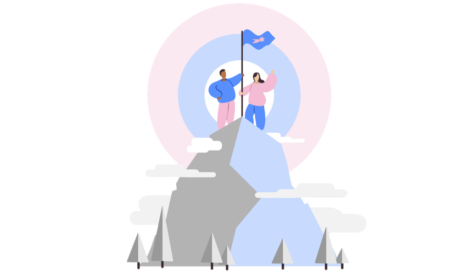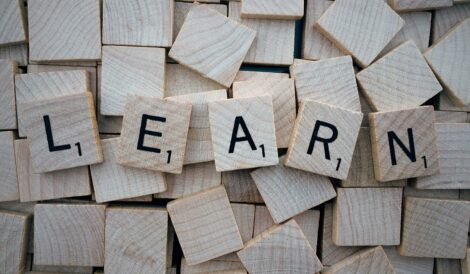The Role of Recreation in Promoting Mental and Physical Wellbeing
In today’s fast-paced world, the health benefits of recreation cannot be overstated. Whether it’s a leisurely walk in the park, participating in a team sport, or simply engaging in a hobby, recreational activities are critical in supporting mental and physical health. The benefits of recreation extend beyond mere enjoyment—it can improve physical health, boost mental resilience, foster social connections, and provide an outlet for stress relief.
This blog explores how recreation impacts mental and physical well-being, its significance in modern life, and how incorporating recreational activities into our daily routine can lead to a healthier, more balanced lifestyle.
The Meaning of Recreation
Recreation refers to activities people engage in for enjoyment, relaxation, and personal development outside their regular work or responsibilities. These activities can be physical, like sports or hiking, or mental, like reading or playing a musical instrument. The term encompasses a wide range of pursuits that can be done solo or in groups, indoors or outdoors, and they all share a common goal: to rejuvenate the mind and body.
Types of Recreational Activities
Recreational activities can be broadly categorised into:
- Physical Recreation: Activities like jogging, swimming, dancing, or yoga involve physical exertion and contribute to physical health.
- Mental Recreation: Activities like puzzles, reading, or painting that stimulate cognitive functions and provide mental relaxation.
- Social Recreation: Group activities like team sports, board games, or attending social events that foster community engagement and social interaction.
- Outdoor Recreation: Activities like hiking, camping, or fishing, which take place in nature and combine both physical and mental benefits.
- Creative Recreation: Engaging in artistic pursuits like drawing, writing, or crafting, which provide emotional and psychological satisfaction.
These activities escape daily stresses and create relaxation, creativity, and social interaction opportunities.
Physical Wellbeing and Recreation
- Enhancing Cardiovascular Health
One of the most prominent health benefits of recreation is the improvement of cardiovascular health. Activities such as running, swimming, cycling, and team sports like soccer and basketball help to strengthen the heart and increase lung capacity. Regular participation in these activities can reduce the risk of heart disease, lower blood pressure, and improve cholesterol levels.
- Building Strength and Flexibility
Recreational activities like weight training, Pilates, or even recreational gardening can help improve muscle strength and flexibility. These activities require the body to engage in physical movement that builds endurance and prevents muscle atrophy, especially as people age. Strength-building recreation helps maintain a healthy weight, improves posture, and decreases the likelihood of injuries due to weak muscles or poor flexibility.
- Weight Management
In a world where sedentary lifestyles are increasingly common, recreational activities provide a vital opportunity for calorie expenditure. Regular physical activity helps regulate weight by burning calories and improving metabolism. Recreation, when done regularly, can contribute to long-term weight management and prevent obesity, which is linked to a host of physical health problems, including diabetes, cardiovascular disease, and joint issues.
- Reducing the Risk of Chronic Diseases
Physical recreation can reduce the risk of developing chronic diseases such as type 2 diabetes, hypertension, and osteoporosis. Activities that increase heart rate and promote movement strengthen the bones and muscles, improving overall body functionality. Research shows that people who engage in regular physical recreation are less likely to suffer from chronic illnesses, leading to a longer and healthier life.
- Boosting Immune System Function
Exercise and recreation are also known to enhance the immune system. Regular participation in physical activities like walking, cycling, or swimming improves the circulation of immune cells in the body, making it easier to fight off infections and diseases. Recreation can be viewed as a natural immune booster that helps protect against everyday illnesses.
- Promoting Better Sleep
Physical exertion during recreational activities helps regulate sleep patterns by reducing stress hormones and increasing endorphin levels. Individuals who engage in regular physical activity often experience deeper and more restful sleep. Recreational activities can help combat insomnia and other sleep disorders, allowing the body to recover and repair during sleep.
Mental Wellbeing and Recreation
- Reducing Stress and Anxiety
In a world filled with stressors from work, family, and financial pressures, recreation offers a much-needed escape. Physical activity, in particular, is known to reduce stress hormones like cortisol and increase endorphins, which are the body’s natural mood elevators. Even simple activities like walking in nature or engaging in light exercise can drastically reduce anxiety levels and improve mental clarity.
- Alleviating Symptoms of Depression
Recreation plays a significant role in alleviating symptoms of depression. Physical activities such as running, dancing, or participating in team sports can trigger the release of dopamine and serotonin, chemicals associated with happiness and pleasure. Even non-physical recreational activities, like painting or playing an instrument, can provide emotional relief and a sense of accomplishment, which can help counter depressive moods.
- Enhancing Cognitive Function
Mental recreational activities, such as puzzles, chess, or learning a new skill, help to keep the brain sharp and improve cognitive function. Engaging in such activities has enhanced memory, problem-solving abilities, and creativity. Recreation stimulates brain activity, which helps prevent mental decline as people age, reducing the risk of diseases like Alzheimer’s and dementia.
- Boosting Self-Esteem and Confidence
Participating in recreational activities can improve self-esteem and confidence. Mastering a skill, achieving a fitness goal, or simply overcoming the challenges of a recreational activity can lead to a strong sense of personal accomplishment. This boost in confidence often carries over into other areas of life, such as work or personal relationships.
- Improving Mood and Emotional Regulation
Recreational activities provide a positive outlet for processing emotions. Whether it’s through the physical exertion of sports or the creative expression found in art and music, recreation helps individuals healthily manage their emotions. It offers a distraction from negative thought patterns and promotes positive emotional regulation, leading to an overall improvement in mood.
- Social Connection and Community Engagement
Many recreational activities involve group participation, which fosters social interaction and community building. Engaging in team sports, group exercise classes, or community events provides opportunities to meet new people and build lasting relationships. Social interaction is critical for mental health, as it reduces feelings of loneliness and isolation, which can contribute to depression and anxiety.
The Role of Outdoor Recreation
Outdoor recreation holds special significance in promoting both mental and physical well-being. The benefits of spending time in nature are well-documented, with studies showing that time outdoors can improve mood, reduce stress, and increase overall happiness. Activities like hiking, camping, and even walking in green spaces have been linked to lower levels of anxiety, depression, and fatigue.
- The Healing Power of Nature
Exposure to natural environments has been shown to lower blood pressure, reduce cortisol levels, and decrease the heart rate. In today’s digital age, where people spend much of their time indoors and in front of screens, outdoor recreation offers a much-needed opportunity to unplug and reconnect with nature. This connection can have profound psychological benefits, including a greater sense of calm, improved focus, and heightened creativity.
- Physical Benefits of Outdoor Activities
Outdoor activities, such as hiking, mountain biking, or kayaking, offer physical benefits like muscle strengthening and cardiovascular improvement and engage the body in various movements that can’t consistently be replicated indoors. Walking on uneven terrain, for example, strengthens the stabiliser muscles and improves balance. Additionally, outdoor activities often require endurance and flexibility, making them excellent for overall physical conditioning.
- Mental Benefits of Outdoor Activities
Outdoor recreation provides an opportunity for mental rejuvenation. Being in natural settings promotes mindfulness, allowing individuals to focus on their surroundings rather than daily life stressors. Whether it’s the soothing sound of a river, the rustling of leaves, or the view of a mountain range, these sensory experiences can induce a meditative state that promotes mental clarity and relaxation.
The Social Benefits of Recreation
- Building Community Connections
Recreational activities provide excellent opportunities to build and strengthen community connections. Whether joining a local sports league, participating in group fitness classes, or attending cultural and social events, these activities bring people together and foster a sense of belonging. Strong social networks are associated with improved mental health, offering support, reducing stress, and providing a sense of purpose.
- Enhancing Communication and Teamwork
Team sports and group recreational activities also teach valuable communication, cooperation, and teamwork skills. These skills are essential in recreation and transfer to professional and personal life. Individuals who engage in team-based recreational activities often develop a stronger sense of empathy, problem-solving abilities, and leadership skills.
Recreation as Preventative Health Care
Given the myriad mental, physical, and social benefits of recreation, it can be viewed as preventative health care. Regularly engaging in recreational activities can reduce their risk of developing chronic illnesses, improve mental health, and maintain social connections—all of which contribute to a higher quality of life. In a society where healthcare costs continue to rise, recreation offers a cost-effective way to promote wellness and prevent disease.
Encouraging a Culture of Recreation
For recreation to truly have an impact, it must be prioritised at an individual and societal level. Employers can promote wellness by encouraging work-life balance and providing recreational facilities or time for physical activity. Schools can introduce programs that highlight the importance of play and physical fitness. Communities can invest in public spaces such as parks, trails, and recreational centres to make it easier for individuals to engage in recreational activities.
Conclusion: Embracing Recreation for a Balanced Life
The role of recreation in promoting mental and physical well-being is undeniable. From improving cardiovascular health and cognitive function to reducing stress and enhancing social connections, recreational activities are essential for maintaining a healthy and balanced lifestyle. Incorporating recreation into daily routines leads to immediate benefits such as improved mood and physical fitness. It contributes to long-term health outcomes by preventing chronic diseases and enhancing overall quality of life.
You must have understood the importance of studying leisure and health courses. You can visit our website today to explore our community service courses and enrol in the Certificate IV in Leisure & Health.



